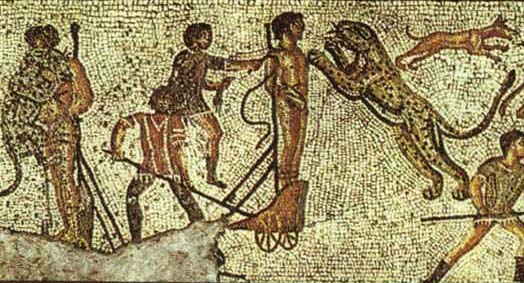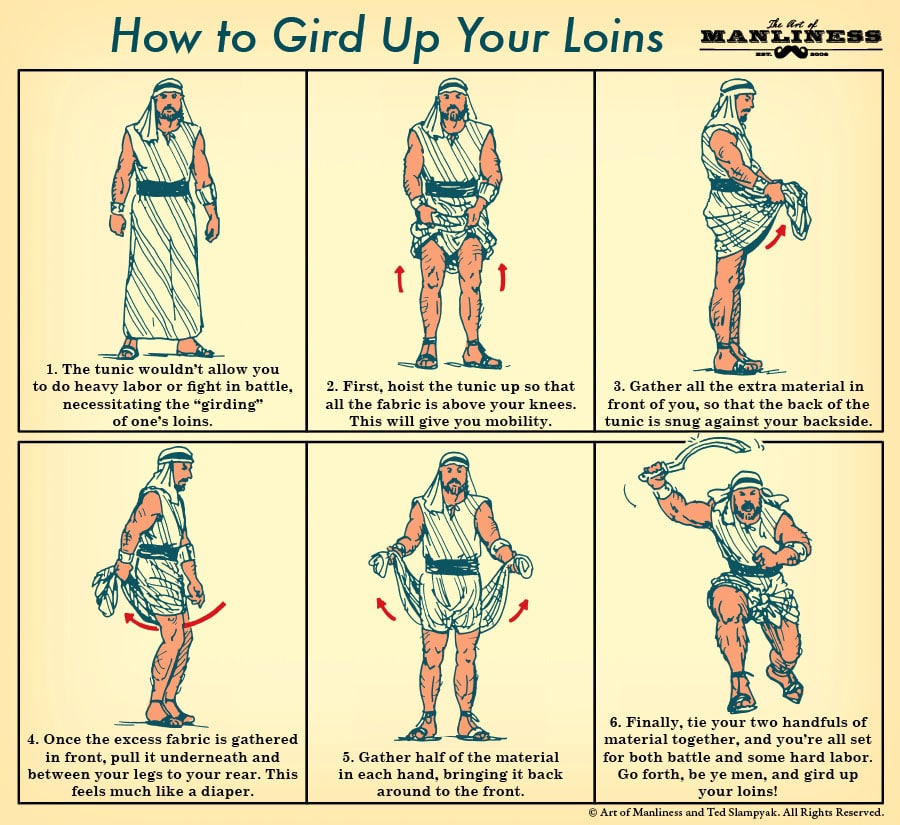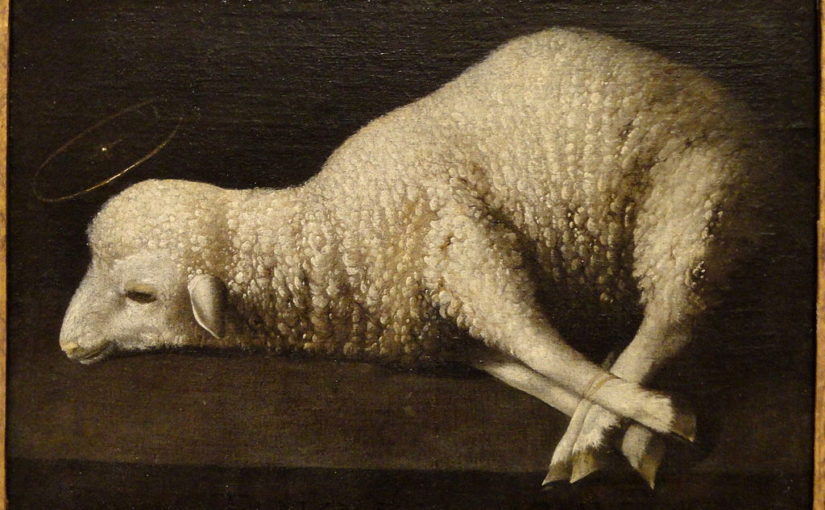Suppose you had to write an insurance policy for your life and had to list those things you have that you want protected. What would be the perishable things in your life that you would want covered? Pay check. Health. High definition TV. Tide’s tickets. These aren’t bad things. We spend a lot of time involved with these perishable things. In fact, our life would not be very much fun without some of them. Congress is about to help us out on our list by spending several trillion dollars to make us happy. Of course in doing that, it makes me more sure that I need more inflation insurance.
What would be the non-perishable or “forever things” you have that you wouldn’t have to have insurance for? Reputation. Loved ones. Kindness. Eternity. There is a difference between those perishable things and the “forever things.” For perishable things we depend on the actions of others. Like: What they will pay us. How much what we do is worth. Second hand smoke. How good the product was made. The “forever things” depend on us. We control whether we have them forever or not.
For example, what was the toy you enjoyed the most when you were young? Mine was “All Star Baseball.” It was a game that had round cards representing baseball players in the 30s and 40s. The round card were sectioned off for home runs, singles, doubles, triples and outs. You put the card on a board and spun a pointer. Where the pointer stopped told you what happened that time at bat. I must have played that game for hours on end. I even had a league with teams made up of the players on the cards; had a schedule; kept standings and batting averages. Over time, I grew up and the game was probably thrown away. What happened to your favorite toy? If you had that toy back, would you take it in the bedroom, lock the door and play with it one last time? I would. It was important to me then, but I would have put it on my insurance list because it was perishable.
In today’s study, Peter deals with people far from him and tells them not to spend time on the perishable things, but, deal with those things that really count. The “forever things.”
When Peter wrote this letter, he was in Rome. Things weren’t going well with Christians in Rome right then. It was 67 AD and Nero was fiddling around. It hadn’t been that long ago when Rome didn’t pay much attention to the Christians. As far as Romans were concerned, Christians were just a sect of Judaism and Judaism was allowed in the Empire. Now, the Jews didn’t consider Christians as a part of their belief and bristled at the idea. As Peter sat down to think about this letter, Christians were being brutally persecuted by Rome. What had caused Rome to change it’s attitude about Christians?
It all started with Nero and we can trace the start date almost exactly. It was July 29th, 64 AD. Rome wasn’t a gleaming city with only marble building filled with great sculptures. Oh, some of Rome was that way, but, a large part was old, filled with run down wooden buildings and narrow streets. The poorest of Rome lived, worked and died there. It was a slum as bad as the ones in Slumdog Millionaire. On that July night a fire broke out in the slum part of the city. The old wooden tenements went up like kindling in the fireplace. It wasn’t long before the whole area was a flaming inferno. The fire burned for three days before it was finally brought under control. Everybody breathed a sigh of relief, when all of the sudden, it burst out again. This time it wiped everything in that section of Rome. The people in Rome had no doubt who started the fire. They blamed Nero. Nero was possessed with the idea of rebuilding Rome. To do that, he had to get rid of the slums because that is where his new Rome will be built. People were sure that he burned down the slums to get rid of them. This accusation gained credibility when they learned that Nero stood on the balcony of his palace and enjoyed the sight of the fire remarking how the fire looked like flowers blooming and the loveliness of the flames.
Haven’t you watched a fire dance on the logs in a fire place? There is a certain poetry in the way flames build and recede as they consume the log. Rumors rose that Nero even prevented people from fighting the fire and when the fires were put out, sent out men to restart the fires. With the number of people blaming him rising, this wasn’t turning out like Nero planned. He knew that if the people got really mad at him, there were men in the Empire who would seize the opportunity to get rid of him so that they could be made Emperor. He had to have a scapegoat and the Christians drew the short straw. The real question is why did he picked the Christians? Some of the things that figured into them being the bast choice were:
(1) Christianity was primarily made up of Jews. There was a lot of antisemitism in Rome, so, it wasn’t hard to blame Jews for any crime that was committed and they included Christians with the Jews.
(2) Christians celebrated something called “The Lord’s Supper” which was limited only to members. A secrete meal that most Romans knew little about. What they did know was that during the meal the leader ate something and said it was - what? The body of Christ. He then drank something and said - what? It was Christ’s blood. So, it got around that Christians were really cannibals who killed and ate Gentiles or little children.
(3) Rome was big on families. They thought that Christians tampered with family bonds. There was a bit of truth in this charge since Christianity did split families when part of the family became Christians and the other part would have nothing to do with them.
(4) Christians preached that there was a day coming when the world would dissolve into flames brought on by the return of Christ. It wouldn’t be hard to say that Christians were trying to hasten Christ’s return by burning down Rome.
(5) The Jewish faith had a lot of appeal to upper class Roman women because of it’s moral standards. In Rome at that time, there were no morals. The going culture was that if it felt good, do it. Pleasure was all that mattered. Some of these women embraced the Jewish faith and made it their goal to influence their husbands against the Christians who the Jews thought were enemies. One of Nero’s mistresses was a Jewish convert. She might have put in his ear the idea of making the Christians the scapegoats.
The Christians were blamed and a horrible outbreak of persecutions followed. Anything that was done to Christians was applauded by the people no mater how brutal. Nero would have Christians covered with pitch and when it would became dark, the Christians were placed on pedestals in his garden and used as human torches to light the garden. Christians were sewed into the skins of animals and Nero released hungry dogs to chase and eat them alive. There was nothing too cruel that Nero could do to gain Roman support when it came to the treatment of Christians.
This is the world that Peter faced as he sat in his house talking to his companion, Sylvanus. Sylvanus was an important Christian in the early church. He could also be known by his shortened name which was Sylas. He may have been the Sylus who had joined Paul on his second missionary trip. Sylvaus was more than a secretary to Peter. Peter would sit with Sylvanus and tell him what he needs to tell people and Sylus would take it and rewrite it in his own words using the educated Greek that Peter, as a poor fisherman, didn’t know. Seeing what was going on in Rome, Peter knew that it was only a matter of time before it reached everywhere in the Empire. Even to the remote outposts in Asia Minor. He wanted those people to be prepared for what was coming. To be prepared they had to order their priorities. They had to give up the insurance policies for their perishable things and strengthen their “forever things.” We know one thing about the people who would get this letter. They will be mostly Gentile Christians. That is why Peter uses his Greek name, Peter, rather than his Jewish name, Cephas.
With that background, lets see what Peter wants these far off people to do.
1 Peter 1:13 Therefore prepare your minds for action; discipline yourselves; set all your hope on the grace that Jesus Christ will bring you when he is revealed.
Peter tells them to prepare their mind. What he actual said was to gird up their minds which has a little more meaning to his readers than to prepare. In those days men wore robes that were fine for walking, but, got in the way if you had to start running. If you had on a robe and started to run, what would be the first thing you would do? Pull it up the robe to free your legs to move. In those days a man wore a belt around his waist to keep the robe closed, so, he would pull the robe up into the belt until he had a short skirt. Then he would take off running. Today, we might say, “Role up your sleeves and get to work.” That's w hat Peter was getting at. It's time to get to work, so, get rid of the stuff that is slowing you down.
Next, they are to discipline themselves. What Peter is actually telling them was to be sober. What does sober mean? Not be drunk. If you are drunk, what happens to your mind? It becomes confused and a bit unsteady. But, Peter is really not speaking about intoxicating drinks, but, intoxicating thoughts. It is all about judgement and maintaining a steady unconfused judgement. You know, thoughts can be intoxicating. They can get us all stirred up and enthused and divert us from getting things done.
Ever day dream? For some guys my age, it can be about being a bald, paunchy guy day dreaming that he is a sexy hunk. If he wasn’t so intoxicated with the thought, he would go on a diet and act his age. So, Peter is telling them to be steady and to keep their minds sharp and ready to take on a challenge that was coming.
With preparedness and thinking in place, you’re ready for the nitty gritty. The great thing about a Christian is that he lives in hope. Living in that hope he can get by the trials that pop up in the present. Can’t you endure problems if you know that down the road things will work out? Your car is chugging, jumping and acting like it’s on it’s last legs. You have hope that if you can get it to the car shop that has fixed all of your cars in the past, it will be fixed and the problem will go away. Athletes go through hard training because they have hope that it will pay off in the game. When you were in school, you studied because you had the hope that all of that study would payoff when you took the test and got a passing grade, except if you had Miss Kemp for Chemistry. That’s the hope that Peter is talking about. Meeting the present problems with firm resolution because you know that with Christ, the best is yet to come.
1 Peter 1:14 Like obedient children, do not be conformed to the desires that you formerly had in ignorance. 15 Instead, as he who called you is holy, be holy yourselves in all your conduct; 16 for it is written, "You shall be holy, for I am holy.. 17 If you invoke as Father the one who judges all people impartially according to their deeds, live in reverent fear during the time of your exile. 18 You know you were ransomed from the futile ways inherited from your ancestors, not with perishable things like silver and gold, 19 but with the precious blood of Christ, like that of a lamb without defect or blemish. 20 He was destined before the foundations of the world, but was revealed at the end of the ages for your sake. 21 Through him you have come to trust in God, who raised him from the dead and gave him glory, so that your faith and hope are set on God. 33 Now that you have purified your souls by your obedience to the truth so that you have a genuine mutual love, love one another deeply from the heart. 23 You have been born anew, not of the perishable but of the imperishable seed, through the living and enduring word of God. 24 For "All flesh is like grass and all its glory like the flower of grass, The grass withers, and the flower falls, 25 but the word of the Lord endures forever." That word is the good news that was announced to you.
These verses tell us a lot about how Peter viewed Jesus as Redeemer and Lord. Jesus is the one who frees us from a bondage to sin and death. He is the lamb without defects or blemish. Peter is connecting Jesus to the greatest event in Hebrew history. The Passover. Remember the special night when the Israelites left their slavery in Egypt. That night they took a lamb and killed it and marked their doorposts with the blood. When the angel of death flew over to kill the first born in Egypt, those with the blood of the lamb on their doors were spared. Note this. They weren’t spared because they were Jews or even the Chosen People. They weren’t spared because they went to the Temple every day and participated in ritual cleansing. No. They were spared because they obeyed God. They did what God told them to do - paint the door post with the blood of the sacrificial lamb. The slain lamb was the symbol for freedom from slavery as death hovered over their house. Their freedom was not only from slavery in Egypt but from death. What about us? Our freedom from the slavery to sin and overcoming death depends on the sacrificial death of Jesus.
Peter doesn’t let it end there. To free us from sin’s pull and to remove the fear of death would seem to be enough. But, it goes even further than that. Christ was not only the lamb who was slain, but, he, himself, overcame death and proved it by being resurrected. For this triumph, God gave Christ glory. There is a connection between Christ’s crucifixion and his resurrection that cannot be broken. It’s a matched pair that gives us that full measure of salvation.
Sometimes we think that God created things and then made the Jews the promised people to bring everybody to Him. When the Jews let Him down, God ditched his first plan and came up with a new offensive. This time he would send Christ to us. It was God’s backup strategy. Peter tells them that this isn’t what happened at all. Right from the start, before God created the earth; before he created the stars; before he created all of the animals and plants and fish all of that other stuff; before God whipped up a pile of mud and breathed life into it bringing us into being; before all of this great creative plan, God knew exactly what he was going to do. Christ wasn’t a field goal because the Jews couldn’t score a touchdown. Christ’s job was already written out before the foundations of creation. Christ would be the one to finally resolve the gap between God and man. And remember, this was before God had even created man. This was God’s game plan all along. Christ was the one God had picked for the job of reconciling man to God.
Peter paints a pretty gloomy picture of the Christ-less life. What are the two things listed verse 14? Ignorance and desires. Peter adds another in verse 18. Futile. What makes up the Christ-less life?
(1) It is a life of ignorance. There is a difference between stupidity and ignorance. Stupidity is not being able to learn. Ignorance is not wanting to learn. In the pagan world of Peter’s day, their gods were unknowable. They were remote creatures who weren’t very interested in humans except as entertainment. They cheated, lied and did petty things to each other. To tell the truth they weren’t really worth knowing. For the Christ-less, a god is a mystery with power, but never with love.
(2) It is a life dominated by desires. In the Rome that Peter lived in, we would be shocked at how much desires ruled their life. While there were poor people who were starving in the heart of Rome, banquets were being staged that cost tens of thousands of dollars and included such dainties like peacock’s brains and nightingale’s tongues. One Emperor had a banquet where there were two thousand fish served and seven thousand birds. So much for the Surf Rider. And food wasn’t the only desire. Morals were out the window. Men and women married and divorced as much and as fast as they could. There was recorded one rich women who married her twenty-third husband and she was his twenty-first wife. Even the prostitutes had a union with a dental plan. It was a world ruled by desires and finding the newest and wildest ways of satisfying that desire. And that was in Peter’s Rome. Do you think much has changed with all of our political correctness and “let them do their own thing” way of thinking?
(3) It is a life of futility. The basic trouble was that it wasn’t going anywhere. You lived your life and got what you could from it and then you died and that was the end of it. A long sleep from which you will never awaken. The prevailing philosophy was that if a man was going to have to die like a dog, why not live like a dog?
In contrast with the Christ-less life, Peter tells us about the Christ-filled life.
(1) It is a life of obedience and holiness. To be chosen by God, we enter into not only a great privilege but, into a great responsibility. You don’t have responsibility unless your are worthy of it. If you have a job and the boss wants you to take over a department. It is because he believes in you. He believes that you can do the job. God believes in us. He believes that we can do the job. God is our boss, so, we represent Him to the world. If God is holy, then as good workers we have to be holy too. What is being “holy?” Holy come from a word that means “different.” Third Presbyterian Church is different from Walmart. This day is different than Monday. We are Christians and that makes us different from other people who aren’t Christians. In that sense, this church building is holy; this day is holy and you and I are holy. All right, but what do we have to do? Our job is to be different. Different in what way? The world says it’s all right to cheat and steal. We have to be different. The world says that getting stoned or having illicit sex is just another form of recreation. We have to be different. And that difference makes us holy.
(2) It is a life of reverence. Reverence - we hear about it, but, what exactly is it? Reverence is having the attitude that we are always in God’s presence. That’s a tall order. It means I can’t pout when Fifi is laying on the remote. It means I can’t hate a politician for calling when I’m eating supper. Why should I have to be so reverent? Because it cost so much. Not me or you. It cost the life and death of Christ. That made your and my life so valuable, that it cannot be wasted or thrown away. It is always being aware of that cost.
(3) It is a life of brotherly love. A Christian is reborn, not of a mortal seed. There are no birth pangs when this rebirth takes place because this birth comes from an immortal seed. As John puts it, “We are born, not of blood, nor of the will of man, but of God.” In mortal terms, to be born of the will of man means that we may have been just the by-product of a passionate evening. A little soft music. A little wine. No plan for us at all. But in immortal terms, God wanted us and planned for us. Not for this lifetime, but forever more. The true meaning of being reborn is that a Christian is remade. All of the bad chromosomes and defective DNA has been replaced with the very best that heaven can offer. God did this because he loves us. All we have to do in response is to love one another. I think I can do that.
So what do we do with that insurance policy for perishable stuff? Tear it up? Maybe make a new list of items we left off our first list. You see, we really don’t need that insurance policy after all. We have those “forever things.” Obedience and holiness, reverence and best of all love for all of our brothers and sisters in Christ.
Prayer: Father, help us to be holy as you are holy. Enable us to live that holiness by not doing harm, but, by doing good. Amen.








No comments:
Post a Comment